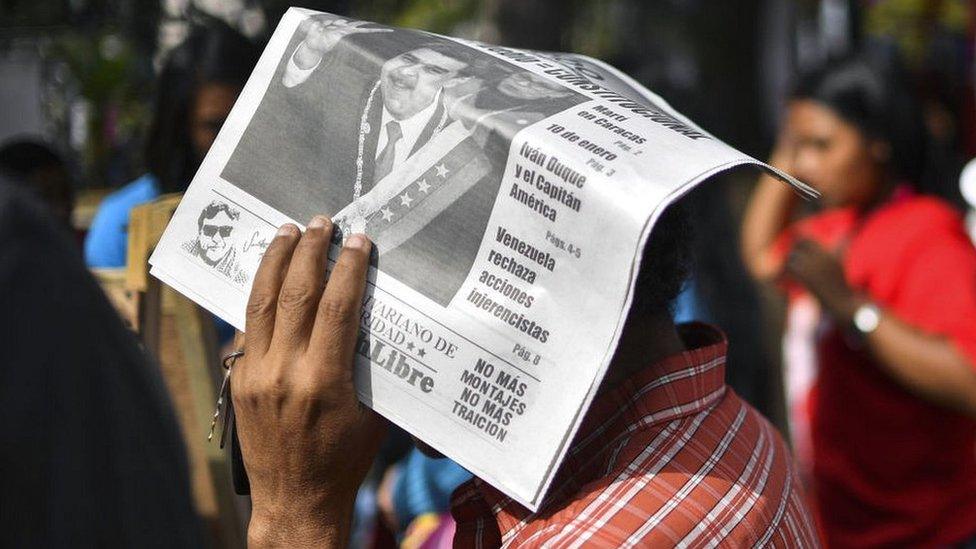Venezuela media guide
- Published
This page is no longer being updated. It was last updated on 18 April 2023

Political polarisation is mirrored in the media, a process that began under Hugo Chavez, whose critics accused him of persecuting hostile outlets and opponents of President Nicolas Maduro say he has continued these tactics.
Anti-government and exile media have emerged online. Many journalists have fled Venezuela because of threats and physical dangers, says Reporters Without Borders (RSF).
The government's main TV mouthpiece is Venezolana de Television (VTV), which carries Mr Maduro's speeches and reports on the activities of his ministers. Its coverage routinely ignores the opposition.
Telecoms regulators have barred many of VTV's competitors from cable networks. Globovision, a one-time critical outlet, changed its editorial line after it was sold to government-linked owners in 2013.
Venezuela is the main shareholder in Telesur, a Caracas-based pan-American TV. Governments with a stake in the venture are all left wing or left of centre.
The government regularly blocks online news content, which affecting various independent media portals. Key independent media include Radio Fe y Alegría, Efecto Cocuyo, Unión Radio, El Estímulo, El Pitazo and El Diario.
There were 22.7 million internet users by July 2022, comprising 78% of the population (Internetworldstats.com).
Press
El Nacional, external - online only, Caracas
Ultimas Noticias, external - Caracas-based daily
El Universal, external - Caracas-based daily
El Carabobeno, external - online only, Valencia-based
Efecto Cocuyo, external - online, independent news outlet
El Estímulo, external - online, independent news outlet
El Pitazo, external - online, independent news outlet
El Diario, external - online, independent news outlet
Television
Venezolana de Television, external - state-run
Televen, external - private
Venevision, external - private
Globovision, external - private
Telesur, external - Caracas-based pan-American TV
Radio
Radio Fe y Alegría, external - independent radio network
Unión Radio, external - independent news radio
Radio Nacional de Venezuela, external - state-run
Union Radio Noticias, external - commercial news network
News agency/websites
Agencia Venezolana de Noticias (AVN), external - state-run, pages in English
LaPatilla, external - news website